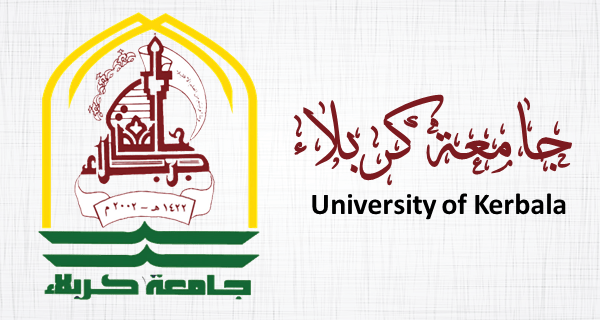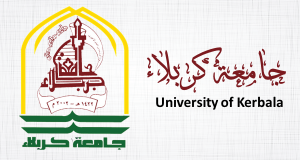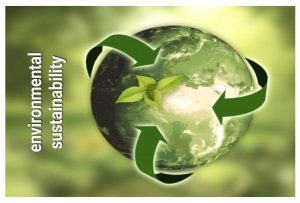Dr. Zainab Turki Nimah
College of Islamic Sciences – University of Karbala
The most important ingredient of the sustainable development project in any society and in the Arab and Muslim countries in particular is the arming of correct and positive moral values stemming from tolerant religious teachings to build an Islamic economy based on the belief and faith reality of this nation, which must be translated into individual and collective behaviors that effectively serve its needs and respond to the aspirations of individuals and society alike. But the reality in our societies is governed by many influences and contradictions. We therefore wonder what the actual determinants of a system of moral values can prevail in today’s Arab and Muslim societies, Which we can confront the effects of globalization and excessive cultural invasion – especially when emerging – in an objective and effective manner No project in the world, scientific, educational, medical, service, urban, developmental, cultural, charitable, humanitarian or social, is based on a set of virtuous values and positive ethics, Projects that are not based on moral values are a worthless mirage. They may be exposed to administrative, financial and moral corruption in many times The majority of projects that fail to achieve their objectives or hamper their achievement in a certain proportion are due to a lack of ethics on which they have relied if implemented, The negative ethics that the project does not and does not mean as much about its success or failure as its success in achieving the greatest personal interests. s various joints.
In fact, the researchers did not agree on a comprehensive classification of values surrounding all kinds of values. There are those who classified them on the basis of generality (general/private values), clarity (explicit/implied values), the degree of continuity (permanent/transient values), and content (political/economic/social/religious/aesthetic/intellectual values). Others, values also have different levels where each level is distinct from the other in terms of content, inclusivity, and impact.[1]
Therefore, among the prevailing concepts, for example, moral values, spiritual values, faith values, religious values and their use as synonyms, can be separated and distinguished as precise terms for each of their controlled meaning. Religious values are more comprehensive than faith values, and spiritual values relate to everything that is spiritual, mental and artistic creativity. Without going into all these details, we will highlight here the moral and social values and their role in building sound bases for development and sustainable development as stated in the Constitution of the Islamic Regime:
Moral values, like other values, express people’s connections to each other, but they are unique in that they express these linkages in that they are based on the will of the self-conscious people and not on the basis of these linkages being the coercion of society, as “moral values do not confuse the system of reality with a system that must be. Ethical legislation is promulgated by an internal authority and expresses the thought of the sequence of ethical values, the idea being that moral law derives its authority only from a high value that dominates a minimum value “[2], Moral values also diversify and vary, “Between a nation and a nation, between an era and an era, between a time and a time, and from a place and a place other than a people’s character, but decent morality is one indivisible, the ethics brought by prophets and missionaries” [3]. Ethics includes good work, altruism, seeking science, doing good, virtue, courage, piety and others. Faith values include rites and worship from prayers, fasting, zakat and hajj. One of the most prominent characteristics of morality is social phenomenon, since it is a social phenomenon. “Social relations are organized according to norms and values that are not always derived from the individual’s sense and conscience, but are mostly of social origins. Morality is a social phenomenon that finds its origins and segregation in society and its evolution.” [4], In the same context, E.Durkheim explains in his book Sociology and Philosophy that “The moral norm cannot emerge from the individual. Not every act can be called a moral act. Rather, the act becomes moral when it is based on an order of society. And thus the moral base is the product of pure social factors, but values are also a social product. they do not express personal perceptions or preferences, but rather reflect the inclusion of preferences as established by the society which imposes and determines their subjects “.
Moral values derive their meaning and strength from the community. Social values are essentially norms and objectives that must exist in all organized societies, whether late or advanced, and penetrate into individuals in the form of attitudes, motivations and aspirations. They manifest themselves in phenomenal or subconscious behaviour, and in attitudes requiring such individuals’ association with one another, values are expressed in laws, regulations, social organization programmes and social systems. The importance of values and their rejuvenation are evident from the essence of an individual’s interaction with his or her environment. Social values are defined as “a set of values that affect the social aspects of human life and livelihood, that is, values that deal with the social reality of the individual as a member of a group of human beings, living together, cooperating and having their traditions, customs, values and behaviours”. [5] (justice/instalment), judgment, social justice, human justice, absolute human consciousness liberation, security and reassurance, hygiene and beauty etc.
But what role can ethical values play in laying the foundations for sustainable development?
One of the most important moral values associated with the concept of development and development or the architecture of the Earth in the Islamic curriculum is the value of “work”.
It is also a moral value to achieve a level of sufficiency expressed by the Prophet in his speech that “To provide a living strength, that is to say, that the life of the individual is well established and rehabilitated, by satisfying the needs of the individual that make him live in the prevailing standard of living, without a wide gap between himself and others.” [6], where this value carries many meanings of interdependence, social integration and values of tolerance and fraternity among members of society.
From all of the foregoing we can say that “transformations and changes in the social fabric have been generated, thereby preventing it from being subject to the normative and value controls it has loved over time, but this fabric does not remain the same, but evolves gradually through successive generations, and through its influenced external or internal influences.” [7] Therefore, the re-establishment of values is an important process required by each development process in order to rationalize and guide the interests and behaviour of individuals and groups towards the goals and objectives of construction, Throughout its history, positive experiences have demonstrated its failure to carry the lofty meanings of development and sustainable development and to confine it to material well-being only, while Islam has provided an integrated social system that combines the affairs of religion and inferiority, between science and belief, balancing the individual and the group, with the comprehensive and integral values that confer upon the individual and the group, and its knowledge of the limits of its duties to the other (human being, animal, nature). Adherence to religious and moral values allows and enables the individual to understand True to the meanings of his mission in life and that God is the creator of the architecture of the Earth and His empowerment and generosity and ridicule Him what is in the Earth so that He can do his job in this world to the fullest. In the same vein, French writer Jacques Ostroy asserts in his book Islamic Perspectives on Revolutionary Socialism that “Islam is the system of applied life and exemplary morals that are high together and these two interrelated destinations are never separated, hence it can be said that Muslims do not accept a secular economy, An economy that derives its strength from the revelation of the Koran necessarily becomes a moral economy, and this morality is capable of giving new meaning to the concept of value, or filling the intellectual vacuum that is about to emerge as a result of a manufacturing mechanism. [8].
The sources
Max Scheler (1874/1928) was one of the most famous philosophers to contribute to the presentation of ethics after having, in France and Germany in particular after the First World War, been touted by “Logical Research 1900,” “Immortal in Man 1921,” “Sociology and Conceptualization 1923”, with a range of articles and studies showing Schler’s position.
Adel al-Awwa, Moral Values, Arab Printing and Publishing Company, Damascus, Syria, 1965, pp. 229/230.
Ismail Abdel Fattah, Encyclopedia of Islamic Values and Ethics, Alexandria Book Center, Alexandria, Egypt, 2005, p. 94.
Mohammed Abed al-Jabri, Issues in Contemporary Thinking, Center for Arab Unity Studies, Beirut, Lebanon, 1, 1997, p. 43.
Ismail Abdel Fattah, Encyclopedia of Islamic Values and Ethics, Alexandria Book Center, Alexandria, Egypt, 2005, p. 172.
Shawqi Ahmed Duniya, Islam and Economic Development, Arab Thought House, Egypt, 1, 1979, p. 47, on: Mohamed bin Ahmed Al-Kartabi, The Collector of the Provisions of the Koran, Egyptian Book House Press, 2, J1, 1935, p. 99.
Ma ‘an Al-Omar, Contemporary Social Issues, University Writers’ House, United Arab Emirates, T1.
Mohamed Mahmoud Al-Bailey, Economy in Light of Islamic Law, Lebanese Book House, Beirut, Lebanon, 2, 1980, p. 47.






























































